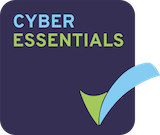Feeling out of control of your mental health right now isn’t uncommon. Everyone’s lives have changed during the COVID-19 crisis, including changes in routines and restrictions on seeing members of your support network – be that friends, family or college support staff. This is why it’s important now more than ever to look after your mental wellbeing and take back control of your mental health.
Now more of us than ever are learning or working from home and self-isolating. It is essential that we take care of our mental wellbeing as well as our physical wellbeing.
It is normal to feel more stressed and anxious in such unprecedented times, but when things are getting too much to handle you need to be able to step back and take some time to care for yourself.
There are many helpful and beneficial techniques that you can try to help keep on top of your mental health – here are some of our favourites.
1. Use distraction techniques!
We all know it’s not as easy as just cheering up, or being positive. Mental health is so much deeper than just feeling down or upset and sometimes the only way to feel better is to distract yourself – which can be harder when you’re stuck at home all day.
Here are some helpful distraction techniques:
- Art
- Puzzles/games
- Easy to watch TV
- Spring cleaning
- Take a long walk
- Exercise
- Play some loud music and dance!
- Read a book
- Take a social media break and take time for yourselves
- Decorate your room
- Start a project – e.g. craft, DIY, a blog
- Bake a cake
- Take online classes
Here are some of the projects our staff and students have been creating whilst in lockdown:



2. Practice mindfulness
With everything going on in the world, it is easy to lose track of yourself in amongst worries and stress.
Some people find mindfulness can help them block out worry and stress by appreciating what they have in the present moment. Mindfulness can help you to enjoy the world around you more and understand yourself better.
Check up on yourself! How are you feeling in this moment? Do you need to be worrying about something- can you control it? What is good right now?
3. Look after yourself!
Making sure you take time for yourself is so important. Even if it’s just for an hour a day, do something that makes you happy!
Read your favourite book, do some baking, go for a run, have a pamper session, play a game – ANYTHING that makes you happy and helps relieve stress!
It is easy to forget about yourself, especially if you are worried and struggling with your mental health, but just give yourself some time every day to forget your worries and focus on you.
4. Remember the #5by5 rule.
If it won’t matter in 5 years, don’t spend more than 5 minutes worrying about it.
Now that most of us are in the confines of our own homes, it can be lonely and easy to run away with your worries and stresses.
Take a step back and think, will this affect me in 5 years? If not – drop the thought as quickly as you can and do something else.
5. Have a news cut off time
It can be hard to avoid the news, especially as it is plastered all over social media! But taking too much of the doom and gloom in can be damaging to your mental health.
Try and set a time every day where you stop watching/reading the news and use that time productively. Tidy your room, read a book, go on a cycle ride for your 1 hour of exercise and step away from the worrying news stories.
6. Volunteer!
Many of our students and staff have been using their spare time to help volunteer for the NHS in care homes, helping the vulnerable in their community, opening pop up shops, helping provide PPE and more!
Volunteering is a great way to distract yourself and give back to the community at the same time!
For more information on how to volunteer click here: https://volunteering.somerset.gov.uk/
7. Useful apps
Try one of these useful apps that help users learn new ways of coping and reducing stress or anxiety levels.
- Headspace: meditation and sleep – learn skills of mindfulness and meditation. (IOS & ANDROID)
- NotOK – an app to alert up to 5 loved ones you are struggling or in crisis without verbalising it. (IOS & ANDROID)
- WhatsUp – a combination of CBT and ACT methods to help combat depression, anxiety, stress and more. (IOS & ANDROID)
- Mind Shift – helping young people change how they deal with anxiety. (IOS & ANDROID)
- Rise Up and Recover- support app for eating disorder recovery. (IOS & ANDROID)
- nOCD – mindfulness and exposure-response prevention treatment for young people with OCD. (IOS only)
- Calm – for anxiety and stress relief (IOS & ANDROID)
8. Helpful Numbers and websites
There are numerous helplines and websites with lots of advice for anyone struggling. Here are a few that we recommend:
- NHS 111 (24hr non-emergency medical advice)
- YoungMinds Crisis Messenger text service provides free, 24/7 crisis support across the UK – text YM to 85258.
- Samaritans – 116 123
- Childline – 0800 1111
- Anxiety Uk– 03444 775 774 (helpline)
07537 416 905 (text)
- CALM (Campaign Against Living Miserably) for men struggling with their mental health – 0800 58 58 58 (UK helpline)
0808 802 58 58 (London helpline)
- Hope Again Helpline For young people struggling with bereavement– 0808 808 1677
Please remember to stay in contact with your college tutor and/or lecturers who will also be able to provide you with details of how you can access support. We hope you are staying safe and well and look forward to welcoming you back to the College as soon as it is deemed safe to do so.




